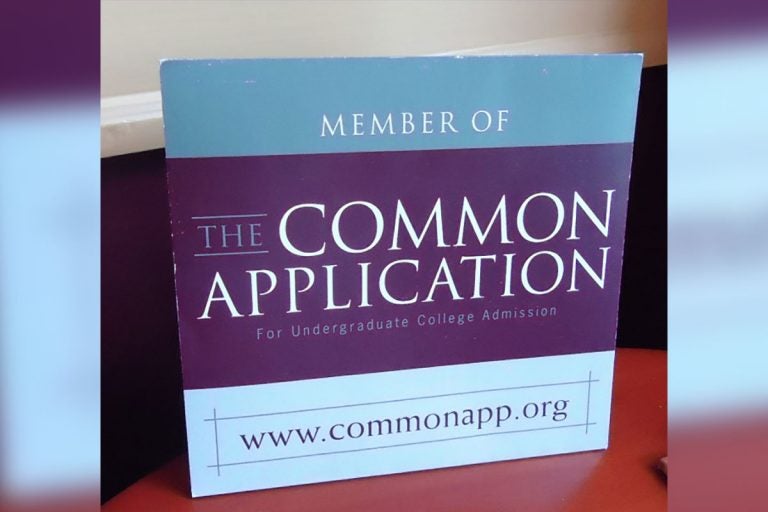Criminal record question nixed from Common Application for college
For years, activists have railed against the question as discouraging and discriminatory to those with a criminal past.

Common Application sign in a Pa. college's admissions office (Wikimedia)
Starting next year, the country’s most widely used college application form will stop asking prospective students about whether they have a criminal record.
The surprise decision comes more than a decade after the question first appeared on The Common Application — and years after activists began railing against it as discouraging and discriminatory to those with a criminal past.
“A lot of students with criminal records may feel like disclosing their record will be held against them in the admissions process and get discouraged from applying,” said Caitlin Brown, a spokeswoman with Community Legal Services, a nonprofit in Philadelphia.
Last year, CLS organized a campaign calling on a group of schools in Pennsylvania to “ban the box” – either by dropping the Common Application altogether or cutting questions from their applications.
“Due to inequality in our juvenile and criminal systems, young people of color are particularly likely to have a juvenile or criminal record, despite the fact that they’re no more likely to commit crimes than their white peers. So, asking about criminal records has a disparate impact on young people of color,” said Brown.
Similar pushes to quash the question have popped up around the country since it became part of the application in 2006.
In 2017, the Louisiana Legislature became the first in the country to pass “ban the box” legislation limiting what public colleges and universities can ask students about their criminal history.
It’s unclear if the nonprofit nixed the question because of pressure from CLS and similar groups.
In a statement, a Common Application spokesman said the organization consulted with colleges and universities and decided “to provide our members with the flexibility they need to best respond to their own institutional policies and practices around this matter, as well as continually evolving local, state, and international legislative and regulatory requirements.”
Schools that want to continue using the Common Application can ask about criminal records using their own supplemental forms.
Given that an estimated one in three Pennsylvanians has a criminal record, Brown said CLS would continue pushing schools with their own applications to follow Common Application’s lead and drop questions about criminal history.
Despite getting rid of the criminal record questions, Common Application will continue to ask prospective students about their disciplinary history in high school because “we found there is greater commonality in the practices and the use of school disciplinary history,” the organization said.
WHYY is your source for fact-based, in-depth journalism and information. As a nonprofit organization, we rely on financial support from readers like you. Please give today.





